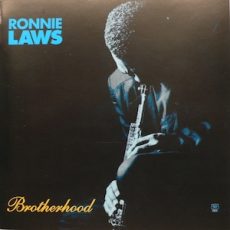
Daily Dose Of Jazz…
Ronald Wayne Laws was born on October 3, 1950 and raised in Houston, Texas. He is the fifth of eight children and started playing the saxophone at the age of 11. He went on to attend Stephen F. Austin State University in Nacogdoches, Texas, for two years.
In 1971 he journeyed to Los Angeles, California to embark upon a musical career. He started performing with trumpeter Hugh Masekela and the following year joined Earth, Wind & Fire, where he played saxophone and flute on their album Last Days and Time. Eighteen months later he decided to become a solo artist. Laws released his debut album Pressure Sensitive on Blue Note Records in 1975.
His first two albums charted on Billboard and by his third album, Friends and Strangers in 1977 was certified gold. Ronnie produced and sang on his sister Debra’s 1981 album Very Special. He would go on to play saxophone through the Eighties on albums by Ramsey Lewis, Sister Sledge, Deniece Williams, Jeff Lorber, Alphonse Mouzon, and Howard Hewett. In the 1990s he recorded with Norman Brown and again with Earth, Wind & Fire.
Saxophonist, flutist and vocalist Ronnie Laws, who has also worked with Guru, Brian Culbertson, and the Crusaders, also influenced Boney James and Norman Brown, and continues to explore the boundaries of his talent.
More Posts: bandleader,flute,history,instrumental,jazz,music,saxophone,vocal
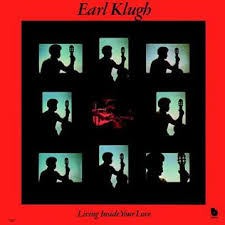
Daily Dose Of Jazz…
Earl Klugh was born September 16, 1953 in Detroit, Michigan. At the age of six he started training on the piano but switched to the guitar at ten. By 13, he was captivated by the guitar of Chet Atkins when he made an appearance on the Perry Como Show.
His first recording was at age 15 on Yusef Lateef’s Suite 16. He played on George Benson’s White Rabbit album and two years later, in 1973, joined his touring band. He has performed as a guest on several of Atkins’ albums, who has reciprocated as well, joining Klugh on his Magic In Your Eyes album.
He and Bob James received a Grammy for Best Pop Instrumental Performance in 1981 for their album One on One. Klugh has recorded over 30 albums, including twenty-three top ten charting records, with five hitting No. 1 on Billboard’s Jazz Album chart.
Each spring, Klugh hosts an event called Weekend of Jazz, featuring jazz musicians at the Broadmoor Hotel & Resort in Colorado Springs, Colorado. The weekend attracts a host of famous musicians and vocalists.
Guitarist and composer Earl Klugh, who was influenced by Bob James, Ray Parker Jr, Wes Montgomery and Laurindo Almeida, has received 13 Grammy nominations, continues to compose, perform and record.
More Posts: bandleader,guitar,history,instrumental,jazz,music
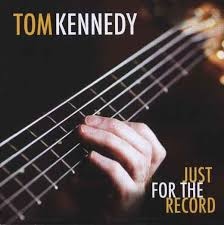
Daily Dose Of Jazz…
Tom Kennedy was born on August 21, 1960 in St. Louis, Missouri and is the son of a professional trumpet player. He began playing acoustic bass at the age of nine on a double-bass brought home by his older brother, jazz pianist Ray Kennedy. It wasn’t long before he began to perform with such as Freddie Hubbard, James Moody, Nat Adderly, Sonny Stitt and Stan Kenton passing through the Midwest.
Specializing in acoustic jazz until he picked up the electric bass at the age of 17. Soon he was dividing his time between mainstream and progressive jazz fusion. Tom gained a reputation beyond St. Louis and he relocated to New York City, where he quickly found work with multiple groups. He recorded with guitarist Bill Connors and toured with Michael Brecker in the jazz-fusion group Steps Ahead. He went on to have tours and recordings with Tania Maria and Al DiMeola.
In 1998, Kennedy became an integral part of Dave Weckl’s band, a group he toured, composed and recorded with for over nine years. They have continued to perform and record together on various projects for other artists, including Mike Stern, Didier Lockwood, Dave Grusin and Lee Ritenour.
He has recorded six albums as a leader and another twenty as a sideman with Dave Weckl, Bill Connors, Don Grolnick, Ray Kennedy, Al DiMeola, Planet X, Derek Sherinian, and Mike Stern.
Tom has also performed and recorded with top contemporary players Simon Phillips, Steve Gadd, Frank Gambale, Steve Lukather, David Sanborn, Jeff Lorber, Ricky Lawson, Joe Sample, Renee Rosnes and George Garzone and fusion band Planet X.
Double-bass and electric bassist Tom Kennedy, who moved to New York City in 1984 and immersed himself in the hard bop, fusion and swing genres, continues to perform and record.
More Posts: bandleader,bass,history,instrumental,jazz,music
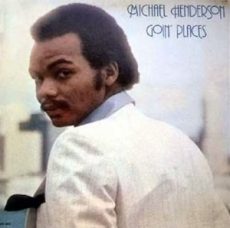
Daily Dose Of Jazz…
Michael Earl Henderson was born on July 7, 1951 in Yazoo City, Mississippi. He moved to Detroit, Michigan with his parents when he was young, his mother, Rose Williams sang in church. During his childhood, he played cello and then switched to bass guitar, teaching himself to play. When he was 10 or 11, he saved enough money to take a bus to see a bill of Motown artists at the Fox Theater. Precociously talented, he was performing with local bands before his 12th birthday.
Beginning his career early around the age of 14, he was on tour with the Detroit Emeralds when he met Stevie Wonder at a Chicago theater. In the dressing room was a piano, Stevie was playing and he sat down next to him with his bass and the meeting was fortuitous. Stevie hired Michael and they toured together for five years while working as a Motown session musician.
In 1970 at the Copacabana in Manhattan, Miles Davis heard him playing with Wonder. At that time Davis was entering his electric and rock rhythms and hired Henderson away. Over the next few years from 1970 to 1977 he recorded a string of albums with Davis, including Bitches Brew, Jack Johnson, Live-Evil, On the Corner, In Concert: Live at Philharmonic Hall, Get Up with It, Agharta, Pangaea, and Dark Magus.
With Norman Connors he invited him to write and record Valentine Love with Jean Carne, We Both Need Each Other with Phyllis Hyman and You Are My Starship. As a solo artist he recorded Take Me I’m Yours, Wide Receiver, and Can’t We Fall in Love Again, again with Hyman.
In 2002 Henderson returned to the music of Miles Davis and with several other Davis alumni, saxophonist Sonny Fortune and drummer Ndugu Chancler, formed the group Children on the Corner. A year later, they released the album Rebirth, which reinterpreted and recreated Davis’s electric music from the 1970s. He remained in the music industry until his death.
Bass guitarist and vocalist Michael Henderson died of cancer on July 19, 2022 at his home in Dallas, Ga., a suburb of Atlanta. He was 71.
More Posts: bandleader,bass,history,instrumental,jazz,music
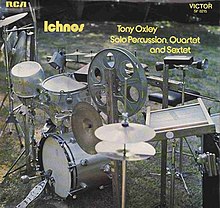
Daily Dose Of Jazz…
Tony Oxley was born on June 15, 1938 in Sheffield, West Riding of Yorkshire, England. A self-taught pianist by the age of eight, he first began playing the drums at seventeen and was taught by Haydon Cook. While playing evening gigs with local dance bands at night, he was sacked from his regular job, at a cutlery-making company, for falling asleep.
During his National Service from 1957 to 1960 with the Black Watch military band he studied music theory and improved his drumming technique. After leaving the army he became a member of a dance band playing for passengers on the Queen Mary and made several trips to New York. When on shore leave Tony visited clubs and heard Philly Joe Jones, Horace Silver, Art Blakey. From 1960 to 1964 he led a quartet which performed locally back home.
1963 saw Oxley playing Saturday afternoon gigs with other aspiring young jazz musicians and working with Gavin Bryars and guitarist Derek Bailey, in a trio known as Joseph Holbrooke. Moving to London, England in 1966 he became house drummer at Ronnie Scott’s, where he accompanied visiting musicians such as Joe Henderson, Lee Konitz, Charlie Mariano, Stan Getz, Sonny Rollins, and Bill Evans until the early 1970s. He was a member of bands led by Gordon Beck and Mike Pyne.
As a sideman he appeared on the John McLaughlin 1969 album Extrapolation and formed a quintet with Bailey, Jeff Clyne, Evan Parker, and Kenny Wheeler, releasing the album The Baptised Traveller. Tony helped found Incus Records with Bailey and others and Musicians Cooperative. The label would go on to release more than 50 albums, received a three-month artist-in-residence job at the Sydney Conservatorium in Australia and joined the London Jazz Composers Orchestra and collaborated with Howard Riley.
Oxley wwent on to join saxophonist Alan Skidmore’s quintet, tutor at the Jazz Summer School in Barry, South Wales, and form the band Angular Apron, and start the Celebration Orchestra He toured and recorded with Anthony Braxton, and began a working relationship with Cecil Taylor. Over the next few decades he joined several bands, recorded a series of albums and ventured into electronic and acoustic percussion music.
Free improvising drummer and electronic musician Tony Oxley died on December 26, 2023.






